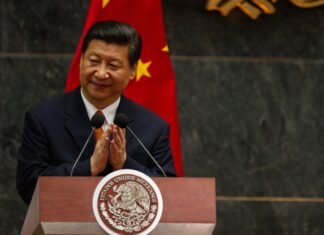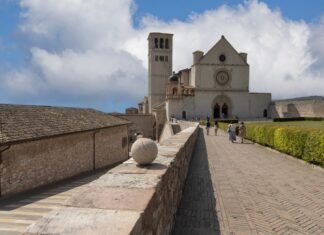In a world that often seems divided by conflict and strife, the message from Pope Leo resonates profoundly: „There is no future built on violence, forced exile, and revenge.” This statement comes at a pivotal moment when three major powers have officially recognized the state of Palestine, highlighting a significant shift in international relations and a renewed focus on peace.
The recognition of Palestine by these nations marks a crucial step in the ongoing struggle for Palestinian statehood. It signifies not just a political acknowledgment but also a moral support for the rights of Palestinians who have faced decades of occupation, violence, and displacement. The official endorsement by these powers has implications that extend beyond diplomatic relations. It sends a strong message of solidarity to those who have long felt marginalized in their quest for sovereignty and recognition.
Pope Leo’s call for peace is a timely reminder that dialogue and understanding must prevail over hostilities. His words urge leaders from all sides to strive for resolution through peaceful means, reinforcing the idea that violence only begets more violence. In a global landscape where wars and conflicts rage, initiatives geared towards reconciliation and mutual respect are paramount.
The significance of this moment should not be underestimated. The official recognition by powerful nations provides a platform for Palestinians to assert their identity and seek justice. It underscores the urgency of addressing the humanitarian crises that have stemmed from prolonged conflict, such as displacement and lack of basic rights. The Pope’s reflection on the challenges facing both the Palestinian and Israeli peoples calls for an examination of the root causes of conflict and the need for comprehensive solutions.
While the road to peace is fraught with challenges, the key lies in diplomacy and cooperation. Pope Leo’s message champions the importance of listening to different perspectives and building bridges rather than walls. Each party involved must recognize the other’s right to exist peacefully. It is essential for leaders to engage in constructive dialogue, fostering a space where both Palestinian and Israeli aspirations can be heard and respected.
Moreover, Pope Leo’s appeal for peace suggests a more profound understanding of the human cost of conflict. Violence impacts not only those directly involved but also future generations, perpetuating a cycle of suffering. By advocating for non-violent resolutions, leaders can help create a legacy of hope and healing for both communities. Addressing grievances through negotiation rather than aggression has the potential to pave the way for a shared future where peace prevails over hostility.
In conclusion, as three major powers extend their recognition to Palestine, Pope Leo’s call for peace serves as a beacon of hope. It highlights the necessity of fostering an environment where dialogue flourishes, and both peoples can coexist with dignity and respect. The future should be built not on the foundations of violence, exile, and revenge, but on mutual understanding, cooperation, and a commitment to justice. Only through such an approach can we hope to see a lasting resolution to the conflict, benefiting not only current generations but those to come as well.






